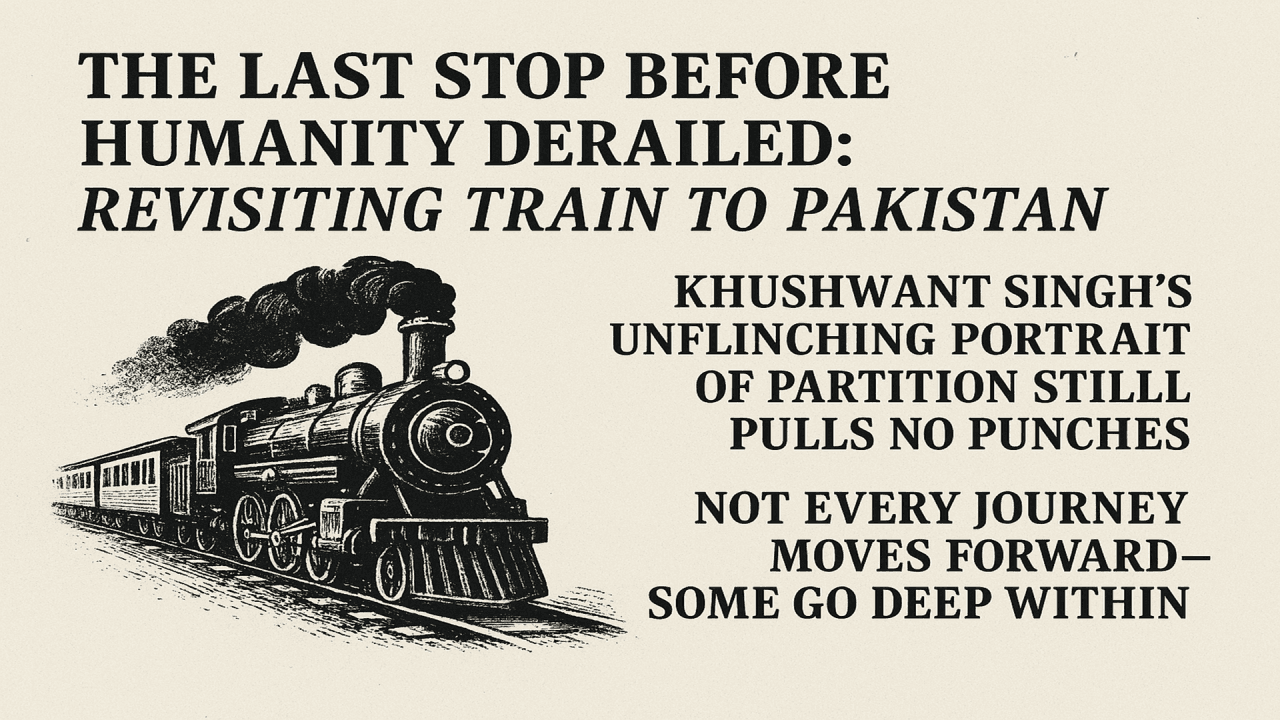A Literary Deep Dive into Khushwant Singh's Masterpiece
The Book That Dared to Tell the Truth About Partition
While historians debate statistics and politicians rewrite narratives, one slim novel from 1956 continues to haunt readers with its unflinching portrayal of humanity's darkest hour. Khushwant Singh's "Train to Pakistan" doesn't just tell a story—it rips open the carefully constructed myths about one of history's bloodiest migrations.
What Makes This Novel Unforgettable
Set in the fictional border village of Mano Majra during the 1947 Partition of India, Singh's narrative follows the lives of ordinary people caught in extraordinary circumstances. The story revolves around:
Juggut Singh (Jugga) - A Sikh dacoit whose love transcends religious boundaries Iqbal Singh - An educated, westernized visitor who represents intellectual idealism Hukum Chand - A magistrate struggling with his conscience Nooran - A Muslim girl whose romance with Jugga becomes a symbol of unity
But here's what makes Singh's approach revolutionary: he doesn't paint heroes and villains. Instead, he shows how ordinary people become capable of both extraordinary cruelty and unexpected compassion.
The Literary Technique That Breaks Your Heart
Singh employs a deceptively simple narrative style that masks profound complexity. His prose reads like a documentary, yet each sentence carries emotional weight that accumulates like storm clouds. The author's background as a journalist shows in his precise, unflinching descriptions of violence, while his humanity shines through in moments of tenderness.
The novel's structure mirrors a train journey itself—starting slowly, gathering momentum, and hurtling toward an inevitable, devastating conclusion. Singh masterfully uses the train as both literal transportation and metaphor for the unstoppable force of history.
Why This Story Still Matters Today
In an era of rising nationalism and religious tensions across the globe, "Train to Pakistan" serves as a stark reminder of how quickly civilization can collapse. Singh's portrayal of how propaganda transforms neighbors into enemies feels disturbingly contemporary.
The novel's treatment of love across religious lines, the failure of intellectuals to effect real change, and the power of individual conscience over mob mentality resonates with modern readers facing similar challenges in their own societies.
The Historical Context That Shaped a Masterpiece
Singh wrote from personal experience—he witnessed the Partition firsthand and lost friends and family members in the violence. This authenticity permeates every page, making the novel feel less like historical fiction and more like testimony.
The author's own complex identity as a Sikh who later became agnostic gave him a unique perspective on religious conflict. His ability to critique all sides while maintaining empathy for human suffering makes this novel a rare achievement in Partition literature.
Critical Reception and Lasting Impact
When first published, "Train to Pakistan" was praised for its honest portrayal of events that many preferred to forget. The novel won several awards and has been translated into multiple languages. It's considered essential reading in South Asian literature courses worldwide.
Critics have noted Singh's skill in avoiding sentimentality while maintaining emotional impact. The novel's influence can be seen in later works dealing with communal violence, from Salman Rushdie to Kamila Shamsie.
Themes That Transcend Time and Place
Love vs. Hate: The central romance between Jugga and Nooran represents the possibility of unity in a world determined to divide.
Individual vs. Community: Characters must choose between personal desires and communal pressures.
Truth vs. Propaganda: The novel shows how easily truth becomes casualty in times of crisis.
Civilization vs. Barbarism: Singh explores how thin the line between civilized behavior and savage violence really is.
The Ending That Will Stay With You Forever
Without spoiling the climax, Singh delivers an ending that perfectly encapsulates the novel's themes. The final scenes on the train bridge represent both the ultimate act of love and the tragic futility of individual action against historical forces.
The ending raises questions that linger long after the final page: Can love triumph over hate? Is redemption possible after unforgivable acts? What does it mean to be human when humanity itself seems lost?
Why You Need to Read This Now
In our current moment of global division, "Train to Pakistan" offers neither easy answers nor false comfort. Instead, it provides something more valuable: a clear-eyed view of how decent people can be swept up in historical forces beyond their control, and how individual acts of conscience—however small—can still matter.
Singh's masterpiece reminds us that behind every statistic, every news headline about communal violence, every political rhetoric about "the other," lie human stories of love, loss, and the desperate desire to simply survive with dignity intact.
This isn't just a novel about Partition. It's a meditation on the human condition itself—and that makes it essential reading for anyone trying to understand our fractured world.
Because some stories don't just entertain. They change how you see everything.
Have you read "Train to Pakistan"? What other novels have helped you understand historical events on a human level? Share your thoughts and join the conversation about literature that matters.

